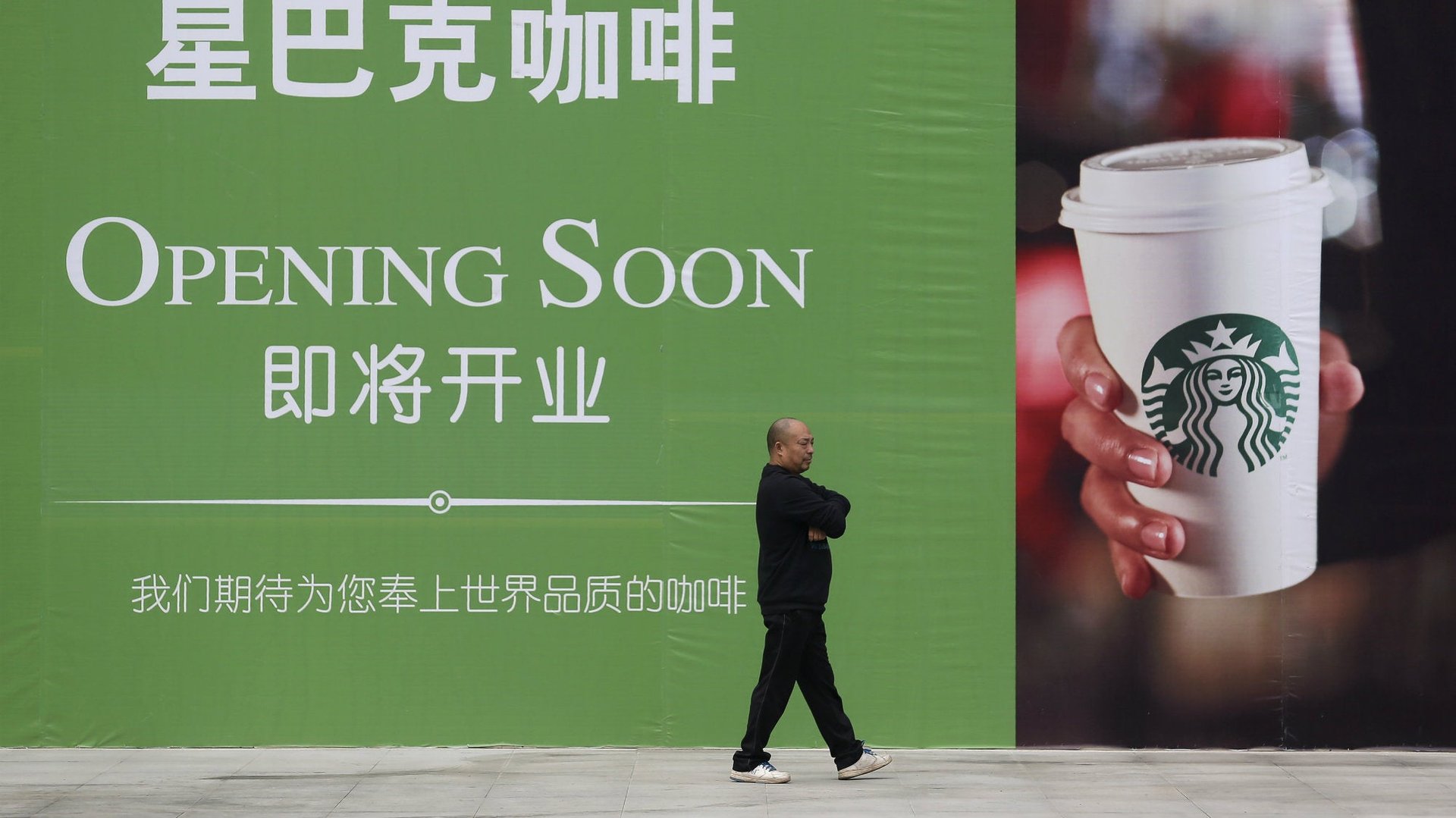Starbucks has opened its first shop on the Tibetan Plateau—and another around the corner
Strike the Tibetan Plateau off the list of the last Starbucks-free places on earth.


Strike the Tibetan Plateau off the list of the last Starbucks-free places on earth.
In fact, on Friday (Sept. 11), the Seattle-based coffee chain opened two outlets in Xining, the 2.2 million-strong capital of western China’s Qinghai province. And like in other cities, Starbucks put its shops curiously close together, some 300 meters (328 yards) apart.
The outlets are also selling a Xining-specific edition of the company’s signature mugs. Yaks feature prominently.
“Young people are very excited by the Starbucks,” Padma Yangkyi, a student and one of the stores’ first customers, told the state-run Xinhua News Agency. “The fondness for traditional buttered tea and Tibetan opera doesn’t weaken our love for coffee and pop songs.”
Starbucks has yet to penetrate Tibet itself. The autonomous Himalayan region’s capital, Lhasa, lies roughly halfway between the chain’s outposts in Xining and New Delhi.
China’s first Starbucks opened in January 1999 in Beijing. The company now has some 1,700 branches in China, surpassing Canada as the country outside the US with the most Starbucks outlets.
The company plans to double the number of coffee shops in China over the next five years. It’s part of an aggressive expansion strategy in the country, its fastest-growing market. Starbucks posted revenue of $653 million in the Asia-Pacific region in its most recent quarter, more than doubling the result in the same period the year before.
Photos from a marketing preview event for the Xining stores in August showed green-aproned baristas serving up croissants and chocolate-drizzled Frappuccinos.
There was no mention of Race Together, Starbucks’ much derided (and quietly abandoned) effort in the US to get customers and baristas talking about race relations over the counter. Given the long-simmering tensions in the region between ethnic Tibetans and the Beijing-controlled government, it’s unlikely the baristas of Xining will be encouraged to stir up debates on race alongside their lattes.